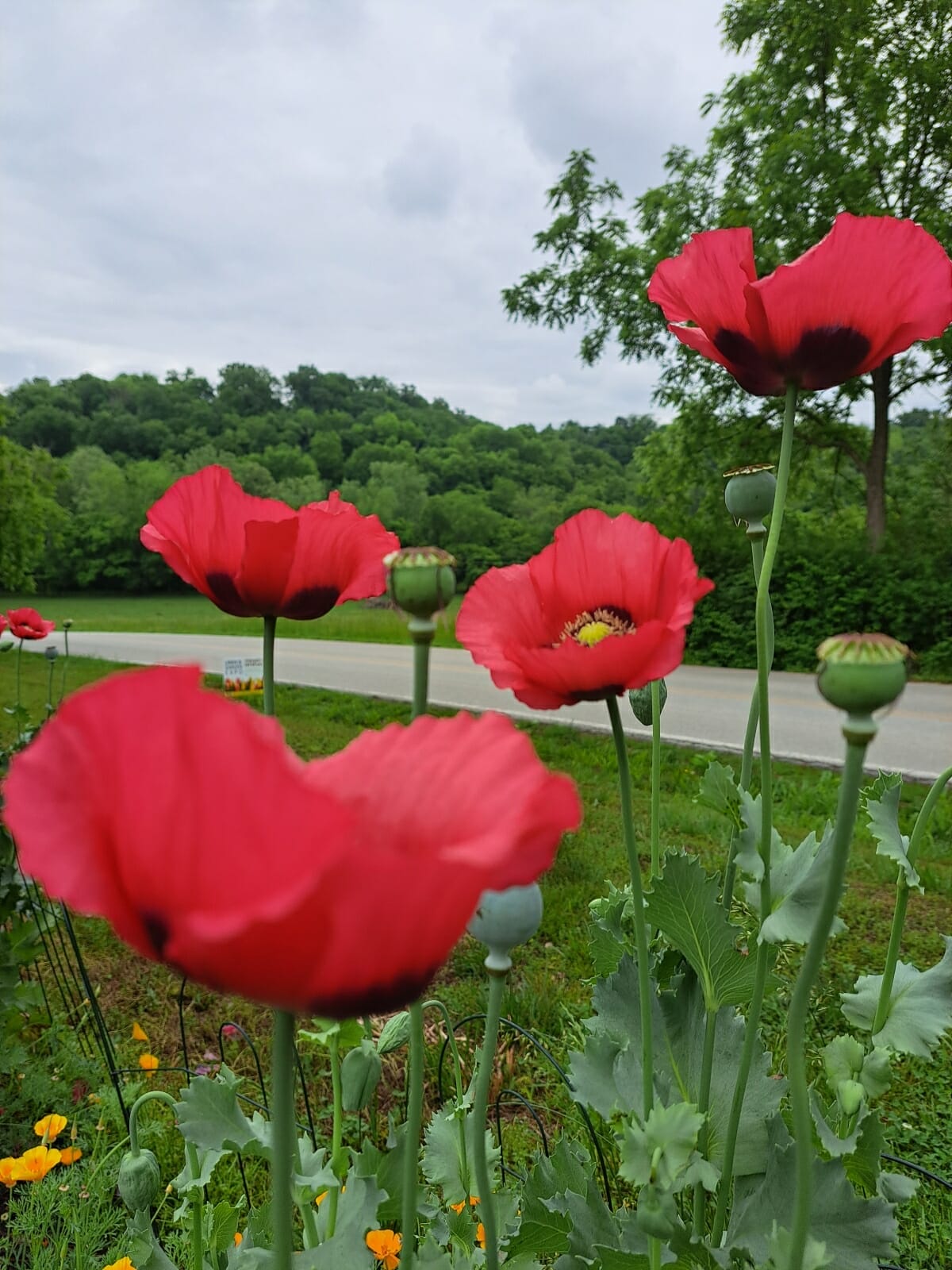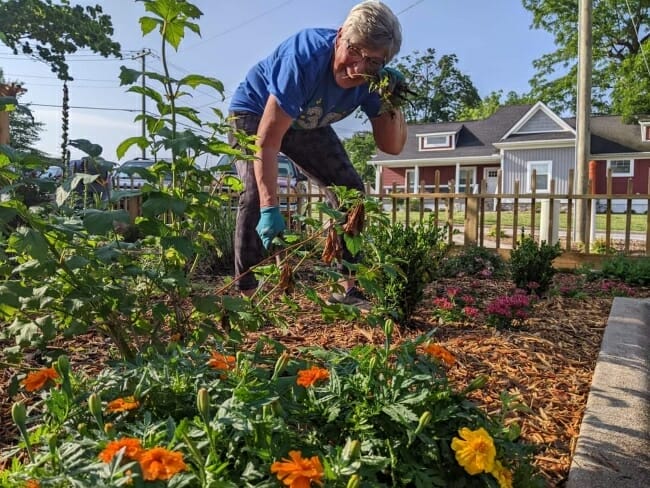

Uh oh...
It appears that you're using a severely outdated version of Safari on Windows. Many features won't work correctly, and functionality can't be guaranteed. Please try viewing this website in Edge, Mozilla, Chrome, or another modern browser. Sorry for any inconvenience this may have caused!
Read More about this safari issue.

Arkansas has long been known as an agricultural state, but what about a gardener’s state, or in this case, a Master Gardener? Arkansas is home to nearly 3,500 Master Gardeners who use their training and expertise to volunteer across the state and whose efforts certainly make Arkansas a beautiful place to live.
The Master Gardener program began in Seattle, Washington, in 1972. Requests for help with gardening had surged, and county agents David Gibby and Bill Scheer were having trouble keeping up with the demands. The two agents brainstormed how to answer as many questions as possible from these new urban gardeners while maintaining their other obligations within the county extension offices. Together they decided the best option was to recruit volunteers and train them in horticulture so the volunteers could take over the majority of questions the office received. They felt these volunteers should also earn a title for the hard work and training they would receive and adapted the German phrase “gartenmeister” into Master Gardener.

From Seattle, this program quickly expanded across the country. It arrived in Arkansas in 1988, beginning with four central counties: Pulaski, Garland, Jefferson and Saline. The University of Arkansas sponsors the program through the county extension office. Gradually the county programs have expanded and currently exist in 67 of Arkansas’s 75 counties.
In 2011, Joanne York moved from California to Arkansas. She had been interested in the Master Gardener program but had been too busy to pursue it while in California. Shortly after her move, she attended a county fair and ran across a Master Gardener booth with all the information she needed to join. York decided to take the coursework and pursue her certification.
To become a Master Gardener in Arkansas, volunteers first take a 40-hour course on horticulture. Participants study annual and perennial plants, shrubs, fruits, vegetables and more. Once these training hours are complete, participants must fulfill a required number of volunteer hours within a year to earn their Master Gardener title. These hours could include a variety of projects. After the first year, Master Gardeners continue volunteering 20 hours a year and fulfilling 20 hours of educational programming. Although half of the volunteer hours must be spent on Master Gardener projects within the gardener’s county, Master Gardeners can complete the educational requirement in many ways, from attending workshops, online presentations, watching gardening videos and researching their own gardening interests.

Many Master Gardeners and candidates work on beautification projects within their county. York is now president of Benton County Master Gardeners, and the group just finished replanting the Hawkins House garden at the Rogers Historical Museum. The house preserves the lifestyle of the Hawkins Family, who lived in the home in 1900. The Benton County Master Gardeners created a Victorian-style garden to match the house’s time period.
Other local projects include landscaping public locations like libraries and courthouses, teaching gardening classes, leading workshops, and helping county extension agents field questions like the first Master Gardeners. York is especially proud of the Benton County Master Gardeners community garden behind Helping Hands, a local thrift store and non-profit organization assisting needy people. The community garden, maintained by the Master Gardeners, fills the food pantry during the growing season, and the gardeners consistently grow around 2,000 pounds of food. “That project won the state award two years ago,” York says. The state organization gives awards each year to its members, which include Master Gardeners of the Year, Project of the Year, and Rookie of the Year.

Once an applicant has completed both the coursework and the volunteer hours within the first year, they earn the Master Gardener title and the chance to continue to carry the title each year through only 10 to 20 volunteer hours with their county chapter of Master Gardeners. The Arkansas Master Gardeners program includes many opportunities for involvement, not only with local gardening opportunities, but also with garden tours and continuing education. Each month, an online class is held by a county extension agent. Members can attend the annual Arkansas conference each year. This year, the Pope County Master Gardeners hosted the June 8-10 conference with informational sessions, garden tours, and a chance to meet other Master Gardeners from across Arkansas.

Master Gardeners can also attend the International Master Gardener Conference in the summer each year in locations across the U.S. and Canada. This year the conference takes place June 18-22 in Overland Park, Kansas. There is also a Junior Master Gardener program open to kids grades 3 through 8 with guided curriculum adult leaders and teachers can use and directions on establishing a Junior Master Gardener group. Washington County currently has a Junior Master Gardeners program. Master Gardeners also work with 4-H groups in their counties. “Our main mission is to educate the public on gardening, whether they’re brand new or have been gardening for years,” York says.
Master Gardeners can be found at county fairs and farmers markets, ready to answer questions on gardening or how to become involved in the organization. They can also be found leading local workshops, like the free fertilizer class held by Master Gardener Don Casteel at Helping Hands on June 17. Many groups also hold local plant sales in the spring, selling seedlings and plants raised by Master Gardeners. These help fund the county groups and the Janet B. Carson Master Gardener scholarships. These $1,000 scholarships are awarded to high school seniors who plan to study plant science in an Arkansas higher education institute.

If you’re curious about your county’s Master Gardener program, many county groups have Facebook pages with up-to-date information that include free classes and gardening advice, like the Benton County Arkansas Master Gardeners or Garland County Master Gardeners. Simply search for your county. The Arkansas Cooperative Extension office also maintains the Arkansas Master Gardener Program Facebook Page. To learn more about enrolling in the Master Gardener certification course, contact your county extension office to inquire about Master Gardening Basic Training. Training is held online and in person in various counties throughout the year.
The next time you pass a community garden, admire your local library’s landscaping or visit the farmers market, you can thank an Arkansas Master Gardener for their dedication to making Arkansas and its gardens productive and beautiful.
All photos are courtesy of Joanne York and the Benton County Master Gardeners and are used with permission.
We do the work.
You check your email.
Sign up for our weekly e-news.
Get stories sent straight to your inbox!









Like this story? Read more from Kimberly Mitchell
Scott Fitzgerald never forgot the feeling of freedom he got from biking...
Trains revolutionized the United States in the 1800s. People and goods...
The American Black Walnut is a unique nut for many reasons, and Arkansas...
Join the Conversation
Leave a Comment